Jianzhong Zhang
PolarDenseNet: A Deep Learning Model for CSI Feedback in MIMO Systems
Feb 02, 2022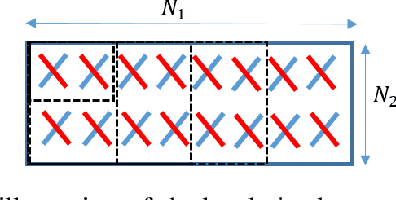
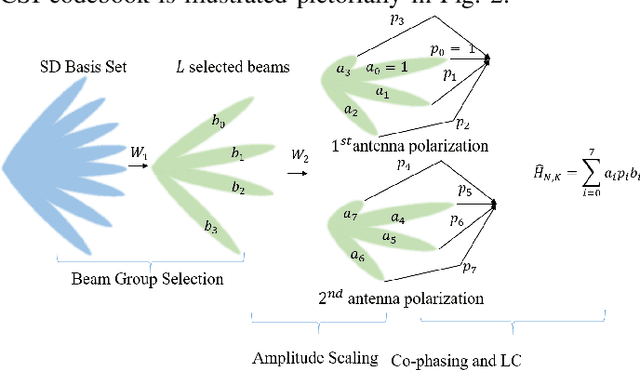
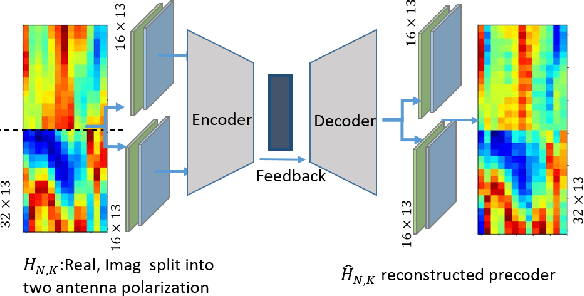
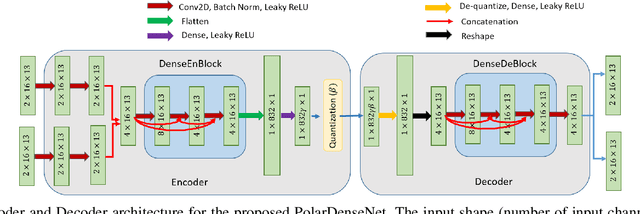
Abstract:In multiple-input multiple-output (MIMO) systems, the high-resolution channel information (CSI) is required at the base station (BS) to ensure optimal performance, especially in the case of multi-user MIMO (MU-MIMO) systems. In the absence of channel reciprocity in frequency division duplex (FDD) systems, the user needs to send the CSI to the BS. Often the large overhead associated with this CSI feedback in FDD systems becomes the bottleneck in improving the system performance. In this paper, we propose an AI-based CSI feedback based on an auto-encoder architecture that encodes the CSI at UE into a low-dimensional latent space and decodes it back at the BS by effectively reducing the feedback overhead while minimizing the loss during recovery. Our simulation results show that the AI-based proposed architecture outperforms the state-of-the-art high-resolution linear combination codebook using the DFT basis adopted in the 5G New Radio (NR) system.
Distributive Dynamic Spectrum Access through Deep Reinforcement Learning: A Reservoir Computing Based Approach
Oct 28, 2018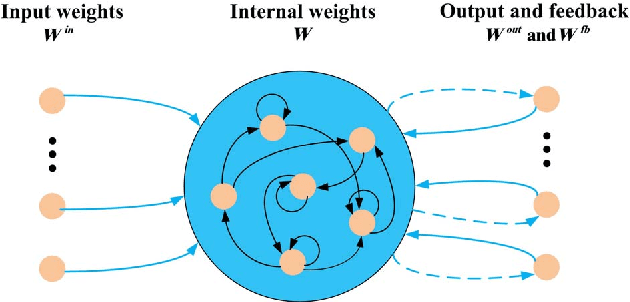



Abstract:Dynamic spectrum access (DSA) is regarded as an effective and efficient technology to share radio spectrum among different networks. As a secondary user (SU), a DSA device will face two critical problems: avoiding causing harmful interference to primary users (PUs), and conducting effective interference coordination with other secondary users. These two problems become even more challenging for a distributed DSA network where there is no centralized controllers for SUs. In this paper, we investigate communication strategies of a distributive DSA network under the presence of spectrum sensing errors. To be specific, we apply the powerful machine learning tool, deep reinforcement learning (DRL), for SUs to learn "appropriate" spectrum access strategies in a distributed fashion assuming NO knowledge of the underlying system statistics. Furthermore, a special type of recurrent neural network (RNN), called the reservoir computing (RC), is utilized to realize DRL by taking advantage of the underlying temporal correlation of the DSA network. Using the introduced machine learning-based strategy, SUs could make spectrum access decisions distributedly relying only on their own current and past spectrum sensing outcomes. Through extensive experiments, our results suggest that the RC-based spectrum access strategy can help the SU to significantly reduce the chances of collision with PUs and other SUs. We also show that our scheme outperforms the myopic method which assumes the knowledge of system statistics, and converges faster than the Q-learning method when the number of channels is large.
 Add to Chrome
Add to Chrome Add to Firefox
Add to Firefox Add to Edge
Add to Edge